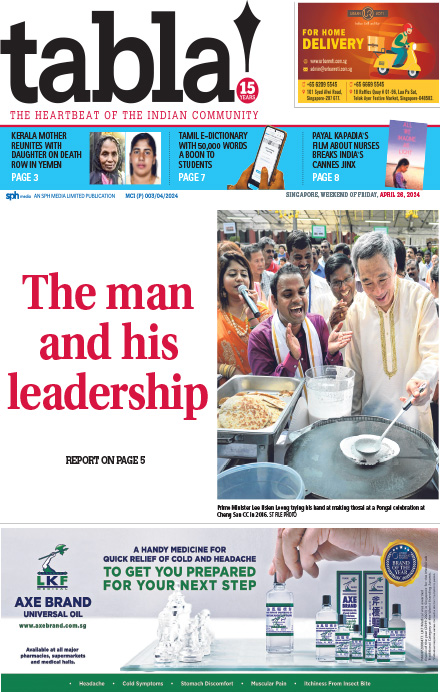India's Tata Group plans to open at least 20 "beauty tech" stores where it will use virtual make-up kiosks and digital skin tests to get young, affluent shoppers to buy premium cosmetic products.
The move pits Tata, whose interests range from cars to jewellery, against Louis Vuitton Moet Hennessy's (LVMH) Sephora and domestic rival Nykaa for a share of the fast-growing US$16 billion (S$22 billion) beauty and personal care market in India.
Tata is eyeing "beauty enthusiasts" in India, between the age of 18 and 45, who like to buy foreign brands such as Estee Lauder's M.A.C and Bobbi Brown.
The conglomerate is considering The Honest Company, Ellis Brooklyn and Gallinee as potential partners.
Tata is in talks with more than two dozen companies to supply exclusive products to the new stores.
The store opening plans follow the recent launch of Tata's beauty shopping app called Tata CLiQ Palette.
The "beauty tech" stores will have a bright-red facade showing Tata CLiQ Palette branding. Inside the stores will be technology that allows customers to try on lipstick shades virtually and do digital skin tests to find out what products suit them.
The technology is not new and is in use by other beauty retailers around the world, but the "experiential retail" is still a relatively new concept in Indian malls and high street shops.
"Experiential retail is going to be a big thing in India as more customers will spend their leisure time at such stores," said Mr Pankaj Renjhen, joint managing director at India's Anarock Retail consultancy.
"In the premium segment, where a customer is looking for things beyond price, experiential retail can trigger impulse shopping and entice them.
"But the products and brands have to be exclusive and good, or else that customer is not going to come back."
Tata is looking to target relatively young and affluent customers who like to shop in comfortable surroundings and are willing to pay the sticker price for premium international brands.
The company calls such customers "non-bargainers", in contrast to most Indians who buy low-priced local brands of lipsticks or skin creams from small beauty stores where haggling for discounts is common.
The company is targeting shoppers with an annual income of at least Rs600,000 (S$10,130), which is more than thrice the average earnings among India's 1.4 billion inhabitants.
Euromonitor estimates India's beauty and personal care market will grow an average 7 per cent a year over the next few years.
"The Indian beauty market is not saturated - far from it," said Mr Devangshu Dutta, head of retail consultancy firm Third Eyesight.
"If you are investing for the long term, with higher income profiles and changing lifestyles in mind, there's a long runway of growth ahead."
Tata faces strong competition in trying to ride the projected growth.
Sephora, which has been in India for around a decade, has 26 outlets selling beauty and fragrance brands.
Reliance, led by billionaire Mukesh Ambani, plans to open 400 beauty stores, the first of which may open inside a Mumbai mall next month.
Indian beauty retailer Nykaa, endorsed by a Bollywood celebrity, plans to open 300 stores, from 124 now.
Tata's first "beauty tech" store will likely open by March, with further expansion stretching into next fiscal year beginning April that might see it open as many as 40 stores, starting with bigger cities such as New Delhi.
Tata is also testing out "geofencing" which alerts staff when Tata CLiQ Palette users enter the store and access their shopping history and wishlists to help in making recommendations.
Reuters



